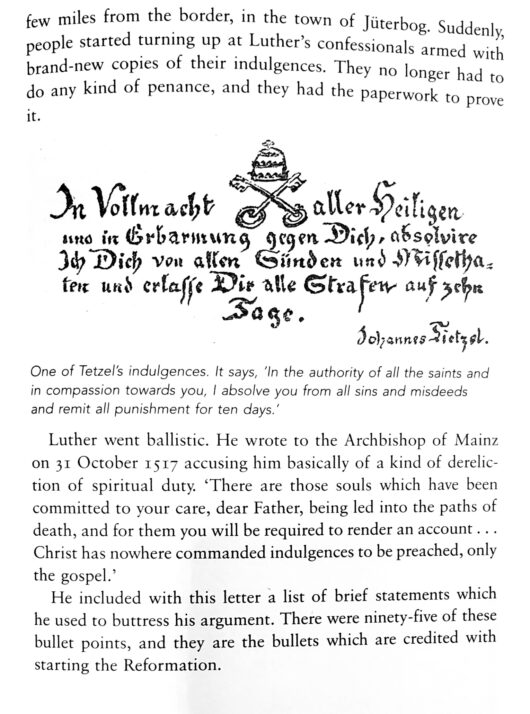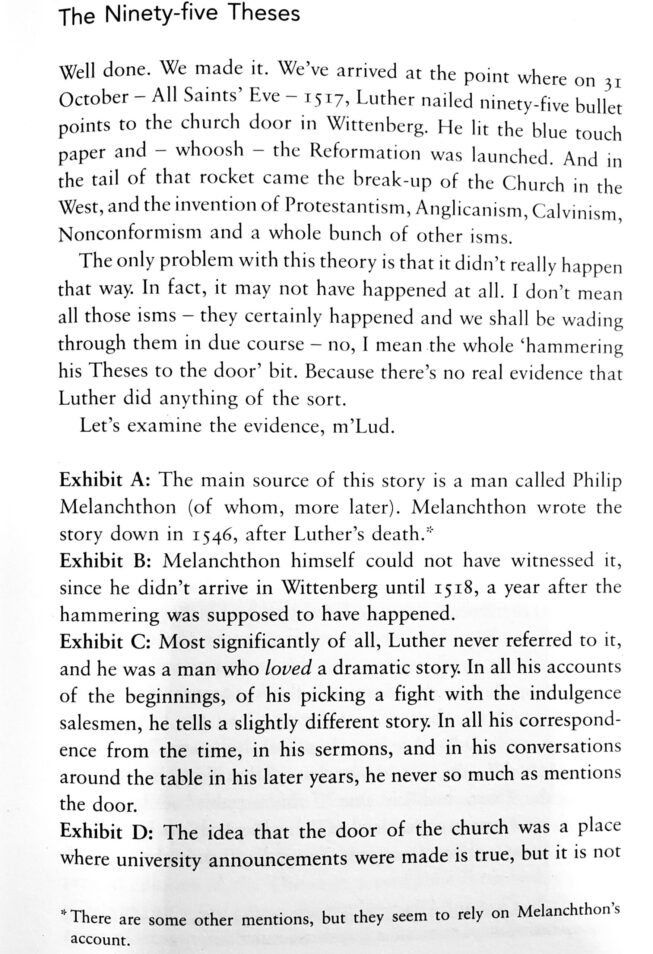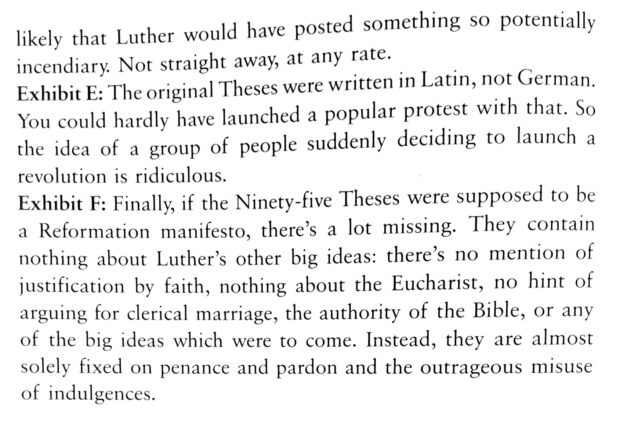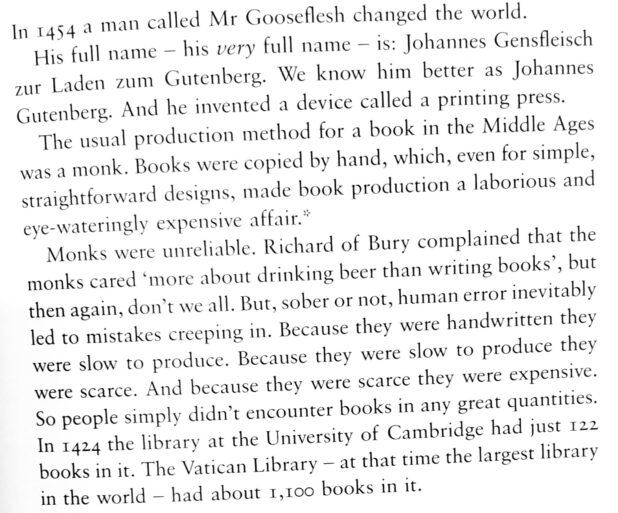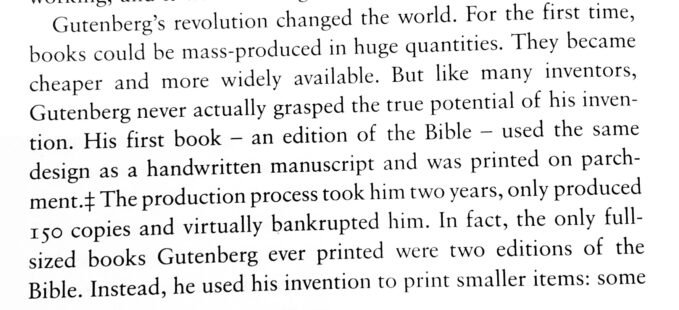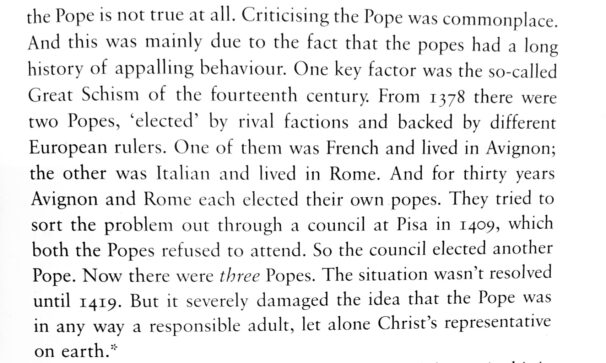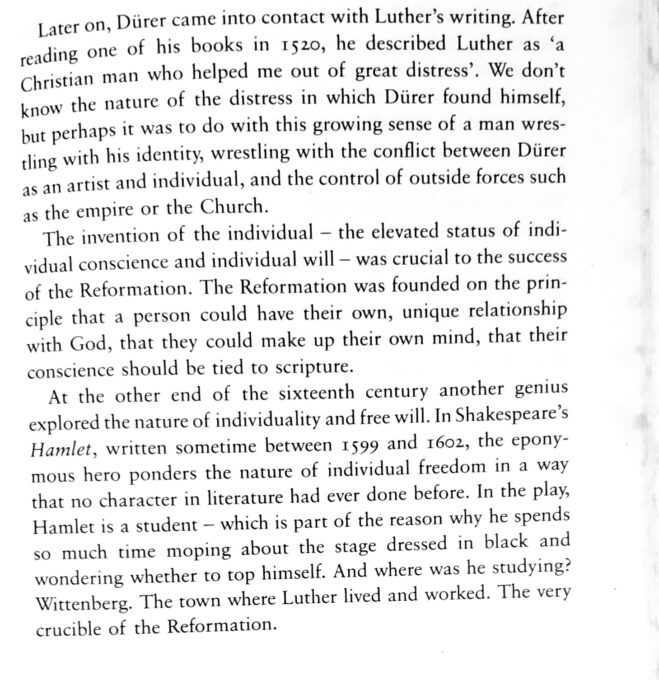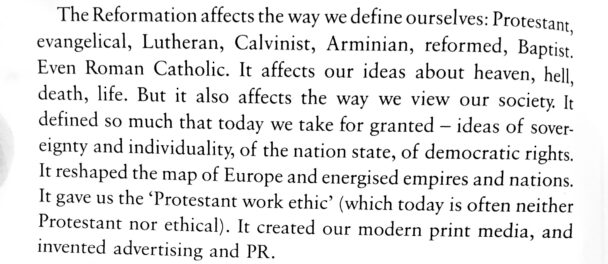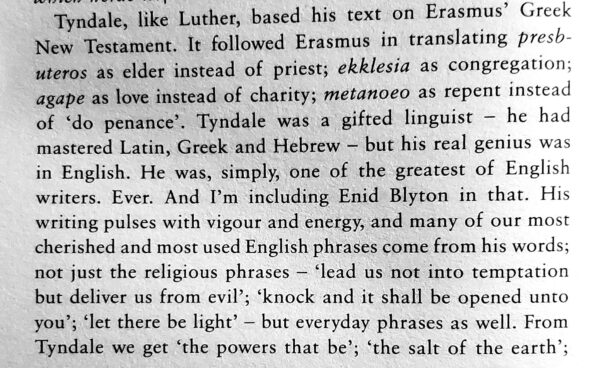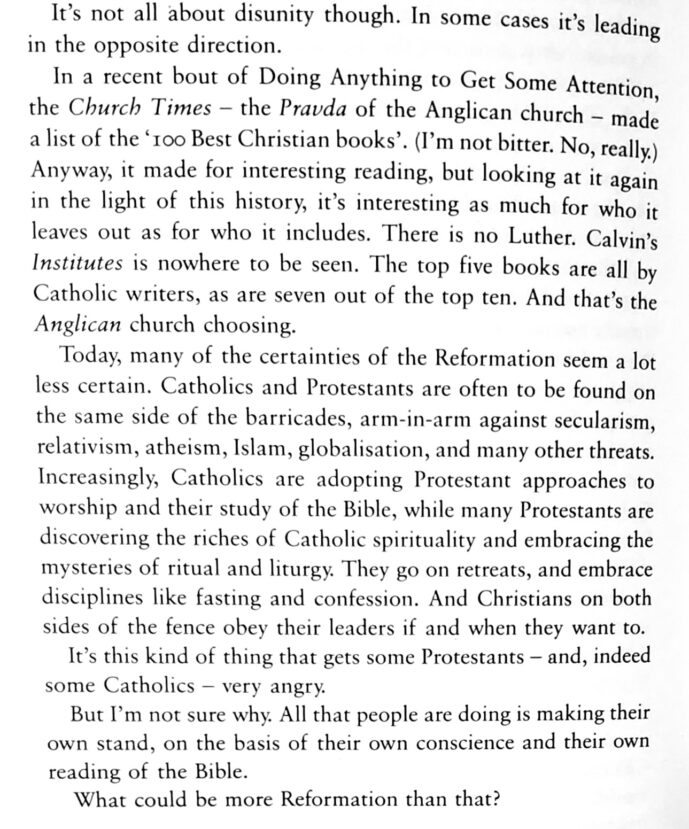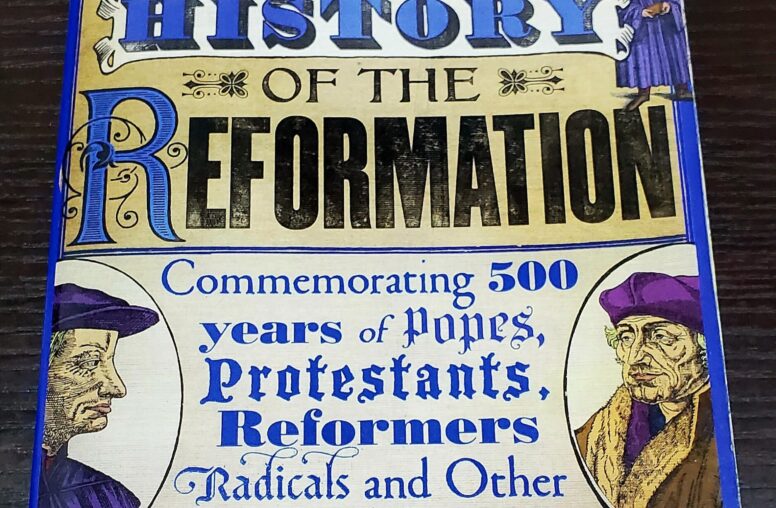It is already settled that I am a huge fan of Nick Page’s work. I find his combination of apologetics, wit and church history research to be refreshing and unique. My introduction to his works was the very excellent and unique A Nearly Infallible History of Christianity. I read that a few years back and got hooked by Nick’s dry wit (I acknowledge that it will not be everyone’s cup of tea), and his incredibly fresh and irreverent but rigorously researched take on the Church’s history. The Wrong Messiah and The Longest Week are two other excellent works of his that I have read in recent years. This year, I had chosen to read A Nearly Infallible History of The Reformation and my expectations were not dashed.
A Nearly Infallible History of The Reformation was published in 2017 to commemorate the 500th year anniversary of the start of the Reformation of the Christian church. It is a rigorously researched but very accessible (and often witty) take on the history of the Reformation – an idea that not only revolutionised the Church but arguably impacted the world, as it had adjacent impacts on democracy and civil society. What A Nearly Infallible History of The Reformation sets out to do and achieves immensely is to highlight the impact of critical players in the Church Reformation, using verifiable sources and rational guesses to separate fact from myth (a major myth is that Luther nailed the 95 theses to the door of the church in Wittenberg on 31 October) and contextualizes the Reformation within the world where it was launched.
There is nothing like an unbiased historian but in A Nearly Infallible History of The Reformation, Nick Page has done a very good job of minimizing his Anglican background as he presents an even take where neither The Catholic church nor the Protestants are painted as ultimate heroes. In fact, if there is one thing that comes out of the book, it is that the Reformation heroes were very flawed and were often guilty of some of the charges that drove their reasons for a split and reformation. Another thing that leaps out of the page is how Cancel culture is not as new as we seem to think; during the Reformation period, any little disagreement did not just end with the contrarian person ostracized by being branded a heretic but they were literally burned at the stake or even beheaded. Any history of the Reformation is incomplete without the critical role that the printing press played in that. The printing press was a revolution in the 16th century. Without it, there would be no Reformation! I find it as pivotal as what the internet and social media particularly have done in the 21st century; it has democratised the polity to the extent that all you need to have a voice is a device (and these devices are now ubiquitous). Especially in places like Africa and parts of Asia where those who wield power wish to stifle voices, a device is all that is needed to be heard around the world. The printing press ensured that Luther’s view could be transmitted far and wide. Also, as soon as Bibles could be printed, every man could read it for himself/herself and decide for themselves, it was all over!
The minor quibble I had with A Nearly Infallible History of The Reformation was that the last few chapters seemed a drag and the humour at that point began to feel forced. However, this does not distract from the fact that it is a very good read, although not as thrilling as A Nearly Infallible History of Christianity. Highly recommended.
3.8/5
